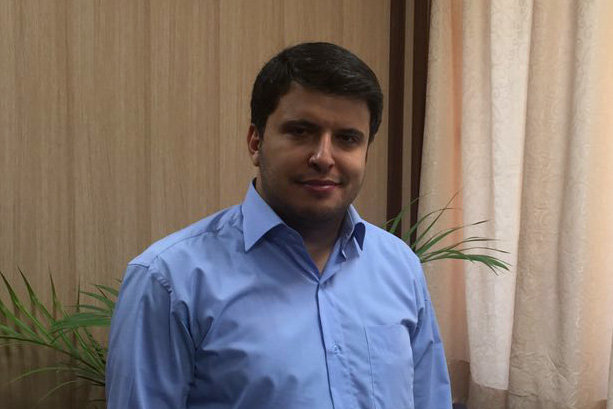
RNA – An eyewitness has given an account of the dire situation governing the lives of Shi’a Muslims in a country where, as the writer would agree, religion is a matter of political as well as state interference.
Respect for other people’s beliefs and religious rituals is one of issues that should be observed by all humans and one of the major goals of international organizations, especially the United Nations. Despite all the investments going into the international organizations specializing on human rights, each year, we hear deplorable news of certain governments spoiling their people’s rights and bounding them. Normally, when speaking about a country like Malaysia, general public opinion inclines to think about a peaceful and lovely nation that respects everyone regardless of their ideology.
That is how this country looks like at the first glance, however, when one starts to dig a little deeper, soon you will realize that not everything is as good as what was initially thought. It might be hard to believe that there are very harsh consequences for preaching faith. In addition to limitations of preaching, there are also limited religious freedoms for certain sects as well as limitations on propagating religious practices. Malaysia is an Islamic country with a population of 30 million, where almost 60 per cent of the population are Muslims and more than 300,000 people are Shi’a.
From 1984 to 1986, the Shi’as in Malaysia enjoyed social rights and were recognized by the law and the government. However, in 1996 the Islamic Sects Council of Malaysia recognized Shi’ism as a diversion from true Islam and therefore, discrimination against Shi’as was given a legal face and things started to get bad. It was clearly announced that the Muslims in Malaysia were only allowed to follow the Sunni school of thoughts, effectively forbidding and subjecting to punishment by law promoting any other religion as by books or other forms of media. Almost 11 out of 14 states of Malaysia have implemented this law, causing a wretched life and destitution for the Shi’as in Malaysia.
With the law in effect, the Malaysian government officials are fully invested with authority to show hostility to Shi’a religious campaign as well as religious clergies. In Malaysia, Shi’as are being monitored every day by the Malaysian intelligence and security agents, which give mandate to the police or the Salafist/Wahhabi extremists to brutally suppress any religious gatherings by the Shi’as. Conversion from any Islamic sect to Shi’ism is not accepted and the person is prosecuted under the law. Shi’as are not even allowed to keep their own religious books in their homes.
They have even been denied government subsidies. Since Malaysian government worked laboriously to prevent the growth of Shi’a Islam in this country, they have planned several conferences in research Centres and educational departments that have led to clashes and violence among the audience. The Shi’as have been proclaiming to be followers of the Shafi’i sect to avoid prosecution by the government, the Salafists and the Wahhabis. Since the law has been in effect, the Salafists and the Wahhabis have been given strong voice in the Malaysian politics.
It was after these fatwas that the United Malays National Organization, the largest political party in the Malaysian parliament announced that they were waging attempts to get the approval of a law that mentions that the only Islamic sect should be recognized by the constitution should be Sunnism.
The harsh conduct of the Malaysian government has rooted in many reasons. The rise of Salafist and Wahhabi ideologies and fanatics in South East Asia and especially in Malaysia in this decade, funded by Saudi financial resources is one of the main reasons of religious profiling of Shi’as in this country. Many Shi’as have been arrested and tortured by the government. The Saudis have significant influence on Malaysia and its officials. Earlier this year, it was revealed and not long ago, the Panama Papers were published which provided the documents that the Saudi king had given $700mn to the Prime Minister of Malaysia ‘as a gift.’
This huge lump sum of money shows how tight the relations are between the heads of these states. Another strong campaign against Shi’ism in Malaysia is being waged by the media. Anti-Shi’a propaganda has been in rise during present decade thank to the Saudi – Wahhabi clerics and the free flow of cash. Religious programs on television have been portraying Shi’as as a minority which is the fan of bloodshed, militancy and homosexuality. Meanwhile some Sunni clerics have condemned such reactions to Shi’as and have called for unity, however it had not found eager audience to help bring a halt to the government’s conduct.
It seems that if the international community fails to get involved actively in this humanitarian case in Malaysia, we will sit to see other tragedies like that in Myanmar, this time not in a country that Muslims are in minority, but rather in a society where 60 per cent of population are Muslims and is being ruled under so-called Islamic law and claims to be one of the countries with freedom of expression and human rights. The situation looks quite different than they appear from the outside. This is certainly the case with Malaysia.
Mohammad-Sajjad Vaez-Livari is an international relations expert and deputy of future studies in Islamic World Studies Centre in Tehran.
R111/112/C